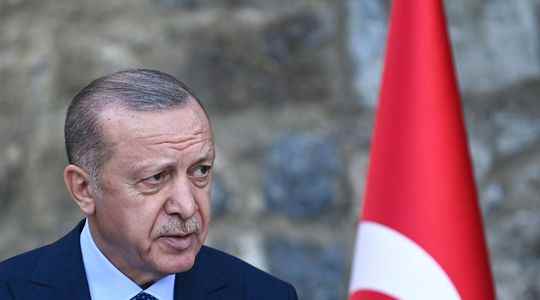The official documents will have to know an update. At the United Nations, Turkey is now called in all languages by its Turkish name “Türkiye” and no longer “Turkey” too connoted in English. Behind this news announced by the UN Thursday, June 2, is the will of President Recep Tayyip Erdogan. “The change is immediate,” Stephane Dujarric, spokesman for UN Secretary General Antonio Guterres, told AFP. The diplomat specified that it was an official letter from Ankara received at the United Nations headquarters in New York on Wednesday, June 1, which immediately formalized Turkey’s name change.
The Turkish authorities had been asking since December 2021 that their country should no longer be called Turkey, in French, and Türkey, in English, which also means “turkey”, and which could therefore have a negative connotation. “At the time, the English called this bird ‘Turkey’ because they thought it came from Turkey, while the French and the Turks thought it came from India”, explains to L’Express Jean Marcou, holder of the Mediterranean and Middle East chair at Sciences Po Grenoble and specialist in Turkey. This belief of the English is explained by the fact that the first turkeys imported into England had passed through Turkey. According to some extensive research, the bird would come from America.
On Tuesday, May 31, Turkish Foreign Minister Mevlüt Cavusoglu posted on his Twitter account, signing the letter addressed to the UN Secretary General and demanding that “the name of our country at the UN, in foreign languages, be registered as ‘Türkiye'”. In his post, the politician adds that “the process” of the Turkish president “to increase the brand value of our country is coming to an end”.
This symbolic gesture on the economic and political level is a way of restoring the image of Turkey on the international scene. In fact, in economic matters, Ankara has wanted for several years to impose “made in Türkiye” internationally at the expense of “made in Turkey”. “Over the past two decades, tourism has exploded in Turkey, it is a country that has opened up to the world, the airline Turkish Airlines is evaluated as one of the best at European level, unfolds Jean Marcou before continue, With this desire to open up to the world, the term ‘Turkey’ is therefore increasingly used. If the bird had been an eagle, it might not have been a problem.”
A way to reposition yourself on the world stage
“Some may find this name change silly, but it puts Erdogan in the role of protector and safeguard of international respect for the country”, analyzes Mustafa Aksakal, professor of history at Georgetown University in Washington, D.C. quoted Thursday by the American daily New York Times.The media points out that in June 2023 Turkey will celebrate the centenary of its founding after the dismantling of the Ottoman Empire. Yohanan Benhaim, researcher at the French Institute for Anatolian Studies in Istanbul and at Noria Research, notes the Turkish president’s desire to “renationalize the name Turkey”, while explaining to L’Express that it is above all a question of a “political communication” in order to reaffirm the national identity of the country.
According to Jean Marcou, it is also a way of “imposing the idea of the existence of a Turkish culture” while “flattering the national sensibility”. Afterwards, it remains difficult to know if this change of name at the UN will be extended by other administrative measures – for example, on passports and visas.” On the lines of Turkish Airlines, before films or in moments of publicity, the official clip repeats at will ‘Hello Türkiye’, against a backdrop of enchanting scenery, is a way ‘to make the world aware’ of this new name”, notes the specialist. On Wednesday June 1, the director of communication, Fahrettin Altun, published this video promo on Twitter, with the caption #HelloTürkiye.
If Recep Tayyip Erdogan is working hard on the international scene, would it be to overcome the difficulties he is facing on the national level? The decision to change the name of Turkey finds little echo according to the BBC, given the economic crisis that is going through the country. “This measure aims above all to seduce the nationalist fringes of the electorate and comes in a context of serious economic crisis which calls into question the popularity of the president and the Justice and Development Party (AKP)”, decrypts Yohanan Benhaim.
In Turkey, inflation is overwhelming the population: it reached 73.5% year on year in May, the highest since December 1998, driven by the increase in energy and food prices, according to official data published Friday, June 3. The rise in consumer prices, however, slowed in May, compared to the increase observed in April, when inflation jumped from 61 to 70%. In this country of 84.4 million inhabitants, inflation is at the heart of the concerns. The opposition and many economists accuse the National Statistics Office (Tüik) of knowingly and largely underestimating its magnitude.
